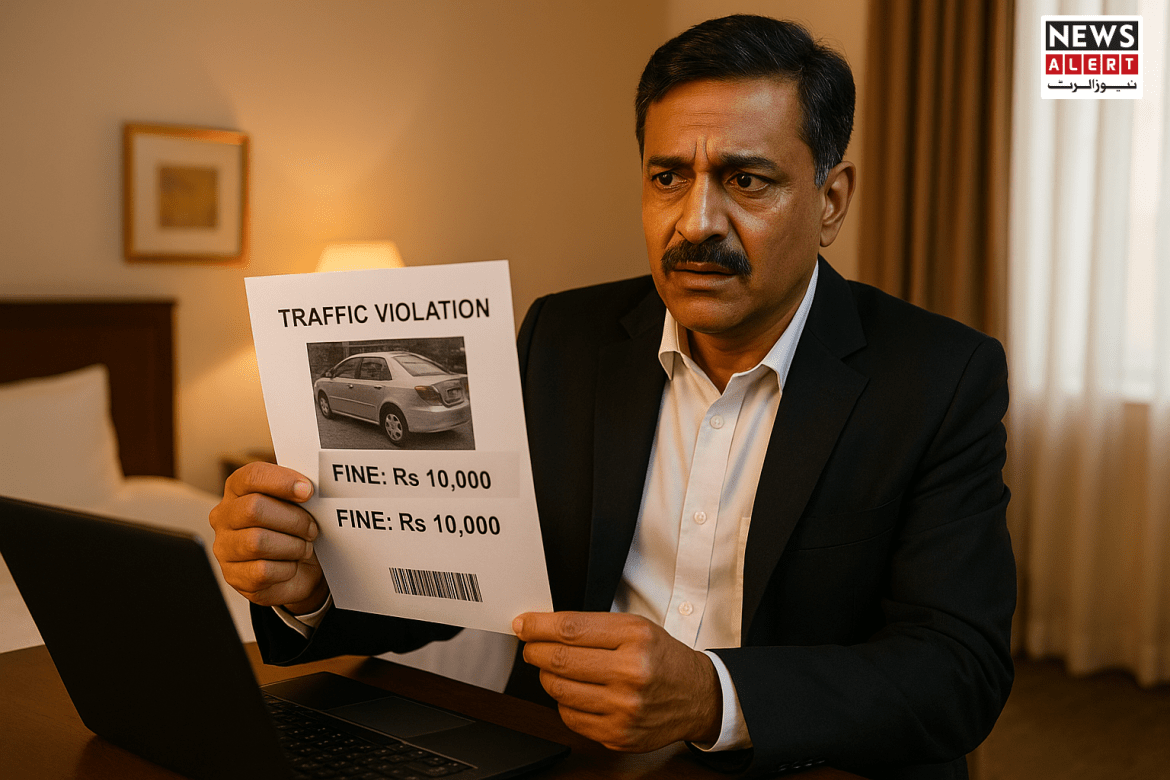A Surprising Notification
Karachi, Pakistan — In a bizarre turn of events, one of Karachi’s top five-star hotels received a traffic fine for a car stolen nearly three decades ago. Last week, the hotel received a Rs10,000 e-challan, leaving management and authorities both puzzled and amused.
The car, registered as AAR-540, went missing in May 1997. Thieves stole it from a parking area near Fayyaz Center on Shahrah-e-Faisal, one of Karachi’s busiest roads. Consequently, a hotel employee, Zahid, filed an FIR (number 122/97) at Saddar Police Station on 22 May 1997.
Despite police efforts, authorities never recovered the car. However, last week the system generated a digital traffic violation notice tied to its license plate.
The Hotel’s Response
Hotel officials responded with a mix of irony and frustration. They stated they would consider paying the fine — but only if the Karachi Police first recovered the stolen vehicle.
This situation exposes major flaws in record-keeping and follow-up, said a hotel representative. Moreover, we are amazed that the system can track a car we no longer possess after 28 years.
Questions About System Accuracy
Experts note that e-challans rely on automated license plate recognition systems. However, these systems often use outdated or incomplete databases.
The system did not check theft records, said a former traffic officer. As a result, administrative gaps created this absurd situation, which could unnecessarily stress citizens.
Traffic fines in Pakistan cover speeding, illegal parking, and other violations. They range from a few hundred rupees to tens of thousands. Furthermore, authorities introduced e-challans to improve efficiency and reduce corruption. Yet, incidents like this show that gaps remain.
Historical Context
Karachi faces a persistent vehicle theft problem. Thousands of vehicles are reported stolen every year, and recovery rates remain low. In the 1990s, authorities relied on paper files, which made long-term tracking difficult.
Later, Pakistan digitized vehicle and traffic records. Nevertheless, old cases sometimes linger in databases without updates. Therefore, this hotel’s fine highlights a significant oversight in administrative processes.
Public Reaction
Social media users reacted with both amusement and criticism. Some called it a comedy of errors, while others warned that outdated fines could harm people financially if applied blindly.
Moving Forward
Karachi Police have not yet commented on the case. However, legal analysts say the hotel has strong grounds to contest the e-challan. Authorities reported the vehicle stolen decades ago, and the hotel does not have it.
This incident underlines the importance of accurate administrative records. As cities digitize public services, officials must cross-check old data to prevent such errors. Ultimately, past mistakes can unexpectedly resurface, even after nearly 30 years.















